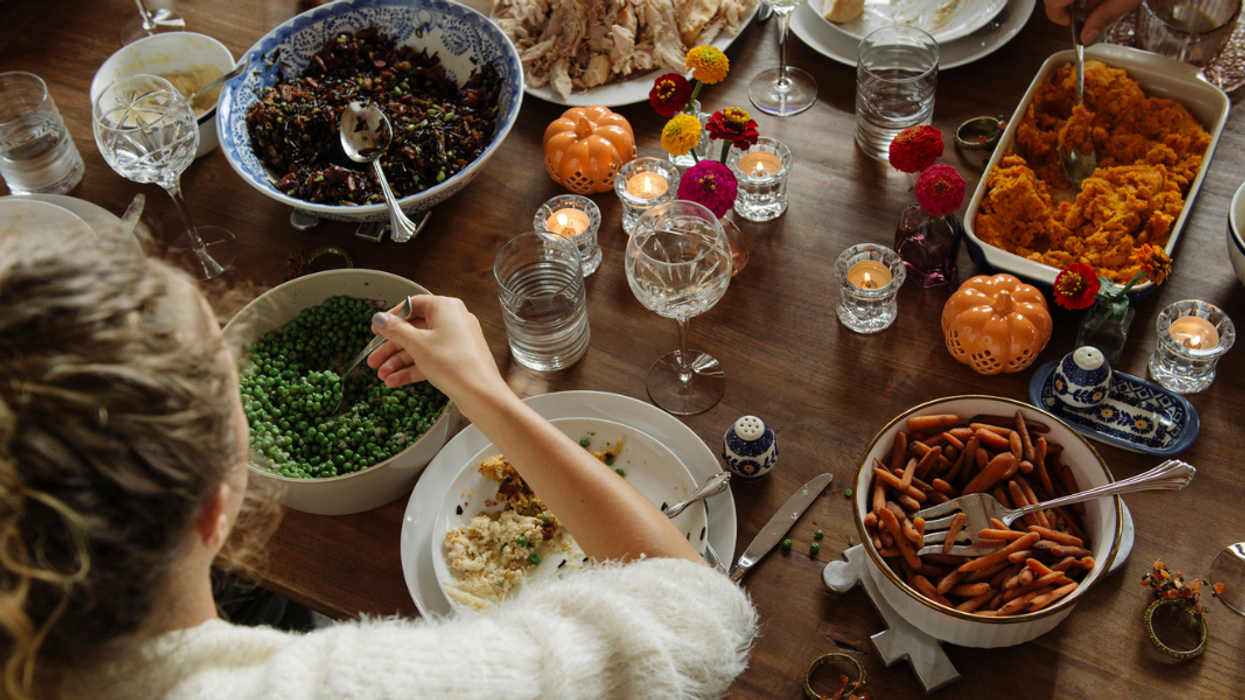Klug served in the U.S. House of Representatives from 1991-1999. He hosts the national political podcast “Lost in the Middle: America’s Political Orphans” and is a “no-marshmallow-in-the-sweet-potatoes” guy.
It would be nice this Thanksgiving if the fight were over which football games to watch. Or a debate over the best green bean casserole recipe. Sadly, for the last four years, too many Thanksgivings have ended with an argument over politics.
The sad fact is that this doesn’t only happen in hyper-partisan households. In our reporting on the lost political middle, we find that even political orphans got sucked into the vortex.
“I mean, we walk on eggshells in our own dining room,” said Angela Larson, who lives on a family farm just outside of Rockford, Ill. She and her sister got into an argument and didn’t talk for nearly a year.
“Our family has very different ideas on politics and policy, and so we try not to talk about it, or we try not to show up when we know it's going to be talked about. But that’s really sad from a family standpoint, from a friend standpoint.”
The same thing happened to Tami Pyfer and her five kids in Logan, Utah. In birth order, her children are Republican, Independent, Democrat, Democratic Socialist, and Libertarian.
“I call it good parenting when, because they've all found their voice, they all have found their political home,” she commented. “When they were little kids, they delighted in putting up signs for my city council races.”
But like in Angela’s household, Covid masks, the economy, Trump and Biden turned good-natured ribbing into an ugly scene.
“It got to be not fun anymore at all,” Tami said. “And everything was so polarized. It became quite difficult for us to manage. So, we stop talking about politics and stop getting together as often,” she said regretfully.
Tami decided to do something about it. Not just impacting her own dining room but the nation. Working with a national group called “Unite,” she and her colleagues cling to the old-fashioned idea of civility. Their first focus was the poisonous language used by elected officials, often in the heat of campaigns.
“Do we have things in common where I say, ‘I disagree with you, but I can see where you're coming from.’ The minute you start name calling, you're in contempt the minute you start saying you're ruining the country,” she explained.
Fundamentally, Democracy is, after all, based on the idea that, as a country, we often face difficult problems. Yet, at the core of our national beliefs is that we have to acknowledge there are different ways to solve them.
Vanderbilt professor Robert Talise argues that “what civility is asking of us is not that we don't disagree, but that in our disagreement, we don't lose sight of the fact that the guy on the other side, despite the fact that he's wrong, nonetheless, is entitled to an equal say. And so he can't be our enemy.”
Keep that in mind this Thanksgiving. Turn off Fox News and MSNBC. Choose the football game instead. An argument over sweet potatoes with or without marshmallows is a better way to go. And hug all of the guests as they head out the door, even the opinionated cousin who knows how to get under your skin.
America could use a break this holiday.




















